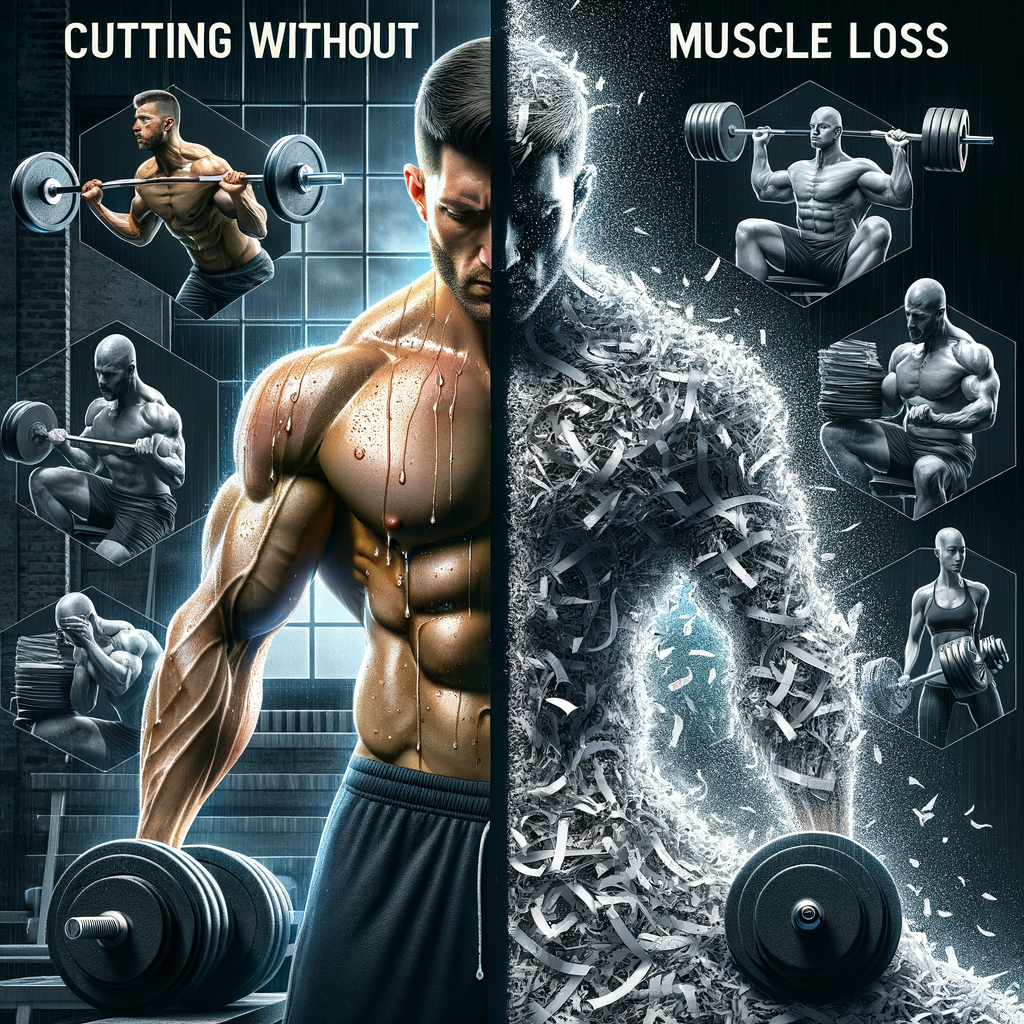- Why Sleep and Muscle Growth Belong Together
- How Sleep Affects Hormones That Build Muscle
- Sleep Stages and Their Role in Recovery
- Protein Synthesis Happens Mostly While You Sleep
- How Much Sleep Do You Need for Optimal Gains?
- Timing Matters: When You Sleep Affects Results
- Quality Beats Quantity, But You Need Both
- Pre-Sleep Nutrition to Maximize Muscle Repair
- Training Timing and Sleep: What Science Suggests
- How Stress and Sleep Interact to Affect Gains
- Practical Sleep Habits for Muscle Growth
- Supplement Strategies That May Help Sleep and Recovery
- Naps: Short and Smart for Extra Gains
- When Sleep Disorders Hinder Muscle Growth
- Tracking Sleep to Optimize Training
- Common Sleep Mistakes That Kill Gains
- Case Studies: Real-Life Gains From Better Sleep
- How to Combine Sleep With Progressive Overload
- Nutrition, Hydration, and Sleep: The Trio for Growth
- Age, Sleep, and Muscle Growth
- Practical Weekly Sleep Plan for Lifters
- Tools and Tech That Help Sleep and Recovery
- Psychological Benefits of Better Sleep for Training
- How Long Until You See Gains From Improved Sleep?
- Summary: Sleep Is a Non-Negotiable for Growth
- 10 FAQs About Sleep And Muscle Growth
- References
Why Sleep and Muscle Growth Belong Together
Most people focus on training and diet for gains. Yet, sleep plays a huge role too. Without enough quality sleep, your hard work in the gym delivers less return. In contrast, good sleep significantly boosts recovery and muscle growth.
Moreover, sleep affects hormones, protein synthesis, and energy. As a result, your body repairs muscle fibers and builds new tissue while you rest. Consequently, sleep becomes a silent partner in every progress update you see.
How Sleep Affects Hormones That Build Muscle
Sleep regulates key hormones involved in muscle growth. For example, growth hormone (GH) peaks during deep sleep. In addition, testosterone levels rise with regular, sufficient sleep. Both GH and testosterone help with protein synthesis and muscle repair.
Conversely, poor sleep raises cortisol, a stress hormone that breaks down muscle. Therefore, chronic sleep loss tilts the balance toward muscle breakdown. Ultimately, you lose gains unless you prioritize sleep.
Sleep Stages and Their Role in Recovery
Your sleep cycles through stages each night. Every stage plays a different role in recovery and growth. For instance, deep sleep (slow-wave sleep) supports physical repair. REM sleep helps with motor skill consolidation and mood regulation.
Below is a quick table that summarizes each sleep stage and its main benefit for muscle growth.
| Sleep Stage | Duration (per cycle) | Main Benefit for Muscle |
|---|---|---|
| Light Sleep (N1, N2) | 20–50 minutes | Transition, basic rest, memory tagging |
| Deep Sleep (N3) | 20–40 minutes | Growth hormone release, tissue repair |
| REM Sleep | 10–60 minutes | Motor pattern consolidation, mood, motivation |
Protein Synthesis Happens Mostly While You Sleep
Protein synthesis ramps up during sleep. Your body repairs microtears caused by resistance training. Consequently, muscles become thicker and stronger. In addition, sleep promotes amino acid transport into muscle cells.
If you skimp on sleep, protein synthesis drops. As a result, recovery slows and gains stall. Therefore, you must sleep enough to maximize your training investments.
How Much Sleep Do You Need for Optimal Gains?
Adults typically need 7–9 hours per night. However, athletes and active lifters may need 8–10 hours. Sleep demand varies by person, training load, and stress. Thus, listen to your body and adjust accordingly.
Importantly, short naps can help. A 20–90 minute nap restores alertness and supports recovery. Yet, avoid long naps late in the day. Otherwise, you might disrupt your nighttime sleep.
Timing Matters: When You Sleep Affects Results
Circadian rhythm influences hormone release and recovery. For example, growth hormone peaks early in the night. As a result, going to bed earlier can boost deep sleep. In turn, this helps with repair and growth.
Additionally, consistent sleep schedules keep hormones steady. Therefore, aim for the same bedtime and wake time daily. Even on weekends, try to limit variation to one hour or less.
Quality Beats Quantity, But You Need Both
You can sleep nine hours yet wake up tired. Poor sleep quality limits deep and REM stages. As a result, your body misses out on the stages that support muscle growth. Fortunately, you can improve quality with simple changes.
First, make your bedroom cool, dark, and quiet. Second, limit screens and bright light before bed. Third, avoid heavy meals and caffeine late in the day. Together, these steps boost effective sleep and speed recovery.
Pre-Sleep Nutrition to Maximize Muscle Repair
Eating the right foods before bed helps muscle repair. Protein before sleep increases overnight protein synthesis. Casein protein works well because it digests slowly. Likewise, a small snack with protein and carbs supports recovery.
Yet, avoid large, spicy, or fatty meals late at night. They disrupt sleep and reduce quality. Also, avoid caffeine within six hours of bedtime. Instead, choose a light protein-rich snack 60–90 minutes before bed.
Training Timing and Sleep: What Science Suggests
Training late at night can both help and hurt sleep. For many people, intense late workouts raise core temperature and adrenaline. Consequently, they find it harder to fall asleep. Conversely, moderate evening training can promote sleep quality for others.
Therefore, test what works for you. If late workouts disrupt sleep, move training earlier. If you sleep fine after hitting the gym at night, keep that routine. Remember, sleep quality matters more than exact workout time.
How Stress and Sleep Interact to Affect Gains
Stress raises cortisol and keeps you awake. Chronic stress not only reduces sleep but also blocks muscle growth. In particular, high cortisol increases protein breakdown. As a result, gains slow down and mood declines.
Thus, you must manage stress to protect sleep and recovery. Try daily relaxation, deeper breathing, or a calming pre-sleep routine. Additionally, make time for hobbies and social time to lower chronic stress.
Practical Sleep Habits for Muscle Growth
Start with consistent sleep and wake times. Then, optimize your sleep environment. Keep the room cool and remove light sources. Use blackout curtains if needed. Also, limit noise with white noise or earplugs.
Create a wind-down routine each night. Read, stretch, or practice deep breathing. Avoid screens and bright lights at least one hour before bed. Finally, consider tracking sleep trends. You can use a simple app or a wearable.
Supplement Strategies That May Help Sleep and Recovery
Certain supplements support sleep and muscle repair. Melatonin can help reset the sleep-wake cycle. Magnesium supports relaxation and sleep quality. Similarly, ZMA blends (zinc, magnesium, vitamin B6) help some athletes.
However, use supplements wisely and briefly. Consult a healthcare provider before starting anything new. Also, prioritize diet and habits over pills. Supplements only help when the basics already exist.
Naps: Short and Smart for Extra Gains
Short naps can boost recovery and alertness. A 20–30 minute nap reduces sleepiness. It also improves performance and motivation. Meanwhile, a 60–90 minute nap can include light and deep sleep.
However, avoid napping late in the day. Otherwise, you might disrupt nighttime sleep. Also, keep naps consistent so they add benefit rather than chaos.
When Sleep Disorders Hinder Muscle Growth
Sleep disorders like sleep apnea reduce deep sleep and hormone release. As a result, muscle repair stalls despite training. If you snore heavily or feel tired during the day, get checked. Treatment often restores sleep and improves recovery.
Likewise, insomnia prevents consistent restorative sleep. In that case, learn behavioral strategies such as CBT-I. These techniques improve sleep without drugs. In turn, you will see better training results.
Tracking Sleep to Optimize Training
Tracking sleep helps you make smart changes. You can use apps, wearables, or a simple sleep diary. Track bedtimes, wake times, naps, and perceived sleep quality. Then, compare sleep with training performance and recovery.
Look for trends. For instance, if your squat drops after poor sleep, take notice. Adjust workouts and recovery when sleep falters. Over time, you will fine-tune the balance between training and rest.
Common Sleep Mistakes That Kill Gains
Many lifters underestimate sleep needs. They train hard and skimp on rest. Also, they use stimulants late in the day. These choices reduce deep sleep and harm growth. Furthermore, irregular schedules throw off circadian rhythms.
Another mistake involves over-relying on naps to “catch up.” While naps help, they do not replace steady nighttime sleep. Instead, make regular sleep a priority and use naps as support.
Case Studies: Real-Life Gains From Better Sleep
Several athletes report performance gains after improving sleep. For example, basketball players who extended sleep improved speed and accuracy. Similarly, rugby players slept more and showed better reaction times. These improvements often translate into stronger lifts and better training quality.
Thus, sleep not only affects muscle size but also training output. Better sleep allows you to train harder and recover faster. Consequently, gains come more easily and look more impressive.
How to Combine Sleep With Progressive Overload
Progressive overload drives muscle growth. Yet, overload only works if you recover. Sleep supports progressive overload by allowing repair and adaptation. Therefore, schedule hard workouts with adequate rest in between.
You can periodize training to match sleep. For example, place heavy sessions when sleep quality is good. On poor-sleep days, use lighter loads or active recovery. This approach prevents injury and preserves gains.
Nutrition, Hydration, and Sleep: The Trio for Growth
Nutrition fuels training and sleep supports recovery. Likewise, hydration affects sleep quality. Dehydration causes restless sleep and cramps. Therefore, drink enough fluids during the day. Also, avoid excess fluids right before bed to reduce night wakings.
Balance carbs, fats, and protein for sustained energy and recovery. Especially, prioritize protein intake across the day and a small protein snack before bed. This combo maximizes muscle protein synthesis overnight.
Age, Sleep, and Muscle Growth
Sleep patterns change with age. Older adults often get less deep sleep. At the same time, they need sleep for muscle maintenance. Therefore, older lifters must focus on sleep quality and timing. Simple sleep hygiene and regular exercise often improve sleep in older adults.
In addition, older adults benefit from resistance training and protein timing. Together with good sleep, these factors protect muscle mass and function as they age.
Practical Weekly Sleep Plan for Lifters
Try this simple weekly plan to boost sleep and gains:
– Maintain a 7–9 hour nightly target.
– Sleep and wake within the same 60-minute window daily.
– Avoid caffeine after mid-afternoon.
– Use a 20–30 minute nap if needed after lunch.
– Eat a small protein snack 60–90 minutes before bed.
– Wind down with a 30-minute routine before bedtime.
Follow this plan for a month and track training progress and energy. Adjust as needed based on how you feel.
Tools and Tech That Help Sleep and Recovery
Wearables track sleep stages and patterns. Apps help you monitor trends and set sleep goals. White noise machines reduce disruptions. Blackout curtains improve melatonin production. All these tools make sleep more consistent and restful.
However, avoid obsessing over data. Use it as a guide, not a rule. Create healthy habits first, then refine them with technology.
Psychological Benefits of Better Sleep for Training
Better sleep improves mood and motivation. Consequently, you enjoy training more. Likewise, sleep helps with focus, decision-making, and willpower. For lifters, that means better adherence to programs and diets.
Moreover, sleep reduces injury risk by improving coordination and reaction time. In the long run, this leads to more consistent training and better progress.
How Long Until You See Gains From Improved Sleep?
You can notice changes quickly. Many people report better energy within a few days. Physical recovery often improves over a week or two. However, muscle size changes take longer—weeks to months. Stay consistent with sleep and training for long-term gains.
Also, track performance metrics like reps, load, and perceived exertion. These measures often show improvement before visible size gains.
Summary: Sleep Is a Non-Negotiable for Growth
Sleep and muscle growth form a powerful duo. Good sleep boosts hormones, repairs tissue, and supports training. Conversely, poor sleep raises cortisol and slows recovery. Therefore, treat sleep as an essential part of your program.
Start with consistent sleep times, a cool dark room, and smart pre-sleep nutrition. Use naps and supplements wisely. Track your sleep and adjust training when needed. Over time, you will notice stunning and seemingly effortless gains.
10 FAQs About Sleep And Muscle Growth
1. How does sleep specifically increase muscle size?
Sleep increases growth hormone and testosterone and enhances protein synthesis. In turn, your body repairs and enlarges muscle fibers.
2. Can I build muscle with 5–6 hours of sleep?
You can build some muscle, but progress will likely slow. Aim for 7–9 hours for optimal gains.
3. Do naps replace nighttime sleep for muscle growth?
No. Naps help recovery but do not fully replace quality nighttime sleep. Use naps as a supplement, not a substitute.
4. Is it best to train in the morning or evening for sleep benefits?
Both can work. Morning training supports earlier bedtimes, while evening sessions may disrupt some people. Choose what helps you sleep and perform best.
5. Will melatonin harm my natural hormone levels for muscle growth?
Short-term melatonin use helps reset circadian rhythms without significant long-term harm. Still, consult a doctor for long-term use.
6. Should I eat protein right before bed every night?
A small protein snack most nights supports overnight synthesis. However, avoid heavy meals that disrupt sleep.
7. How much does sleep affect strength versus size?
Sleep affects both. However, improved sleep often first boosts strength and performance through better recovery and focus.
8. Can too much sleep harm muscle growth?
Excessive sleep may signal underlying issues like illness. Very long sleep can also reduce overall activity. Focus on consistent, quality sleep within a healthy range.
9. What signs show my sleep is hurting my gains?
Signs include persistent fatigue, stalled lifts, increased soreness, and frequent illness. Also, drops in mood or motivation may indicate poor sleep.
10. Should I use a sleep tracker to boost gains?
Sleep trackers help identify patterns and issues. Use them as a guide to improve habits. Don’t obsess over nightly numbers.
References
– Dattilo, M., Antunes, H. K., Medeiros, A., Mônico Neto, M., Souza, H. S., Tufik, S., & de Mello, M. T. (2011). Sleep and muscle recovery: Endocrinological and molecular basis for a new and promising hypothesis. Medical Hypotheses, 77(2), 220–222. https://www.sciencedirect.com/science/article/abs/pii/S0306987711002066
– Simpson, N. S., Gibbs, E. L., & Matheson, G. O. (2017). Optimizing sleep to maximize performance: Implications and recommendations for elite athletes. Scandinavian Journal of Medicine & Science in Sports, 27(3), 266–274. https://onlinelibrary.wiley.com/doi/full/10.1111/sms.12703
– Dattilo, M., Laurino da Silva, J., Antunes, H. K. M., Moreira, N. B., de Luca Sampaio, L., Souza, H. S., … & de Mello, M. T. (2017). Sleep and muscle recovery: Endocrinological and molecular basis. Reviews in Endocrine and Metabolic Disorders. https://link.springer.com/article/10.1007/s11154-017-9435-y
– Spiegel, K., Leproult, R., & Van Cauter, E. (1999). Impact of sleep debt on metabolic and endocrine function. The Lancet, 354(9188), 1435–1439. https://www.thelancet.com/journals/lancet/article/PIIS0140-6736(99)01376-8/fulltext
– Van Cauter, E., Leproult, R., & Plat, L. (2000). Age-related changes in slow wave sleep and REM sleep and relationship with growth hormone and cortisol levels in men. JAMA, 284(7), 861–868. https://jamanetwork.com/journals/jama/fullarticle/192158
– Halson, S. L. (2014). Sleep in elite athletes and nutritional interventions to enhance sleep. Sports Medicine, 44(Suppl 1), 13–23. https://link.springer.com/article/10.1007/s40279-014-0157-0
– Cahill, F., & Reilly, T. (2020). Sleep and sports performance. Clinics in Sports Medicine, 39(1), 1–12. https://www.sciencedirect.com/science/article/abs/pii/S0278591920300181
– Medic, G., Wille, M., & Hemels, M. E. H. (2017). Short- and long-term health consequences of sleep disruption. Nature and Science of Sleep, 9, 151–161. https://www.ncbi.nlm.nih.gov/pmc/articles/PMC5449130/



